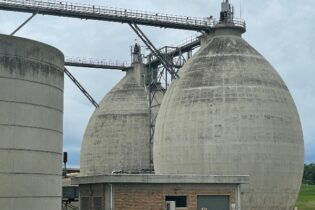Communities in Skierlik village near Swartruggens have called for urgent intervention from government to address the sanitation challenges in the area.
“The government owes us service delivery. “We can’t use the bucket system forever,” complained resident Sylvia Moreme. The Human Settlements Ministerial Sanitation Task Team, during its fact-finding mission at Kgetleng Rivier local municipality in November, expressed concern about the appalling state of toilets and sanitation. “We have travelled through a few municipalities in the North West and are satisfied with what we found in some municipalities, while in others we have to make recommendations for urgent intervention to Human Settlements Minister Tokyo Sexwale. “Women and children are at risk and that needs serious and urgent government intervention,” said provincial task team chairperson Nomazotsho Memani. She said the Popo Molefe informal settlement in Madibeng near Brits, where more than 1000 residents shared just six toilets in a cramped environment that was a health hazard, needed urgent attention.Memani said the North West was a dry province and that municipalities needed to encourage their communities to take pride and ownership of sanitation facilities such as the VIP toilets provided by the government.
She warned residents from Reagile township near Swartruggens in Kgetleng Rivier local municipality to stop throwing objects in their toilets to save the sewer system from blockage. Mayor Kim Medupi said she was delighted about services rendered by the Department of Human Settlements in the municipality, especially the Mazista integrated human settlement development project. Medupi said about 500 families from the impoverished Skierlik informal settlement were relocated to Mazista following the completion of their R51.6m housing development project. The human settlements, public safety and liaison department urged the municipality to ensure Skierlik informal settlement was completely demolished after relocation, in line with the informal settlement eradication programme, so no one else could occupy the recently vacated structures.





